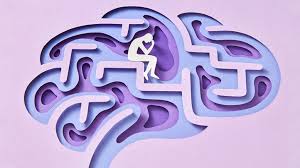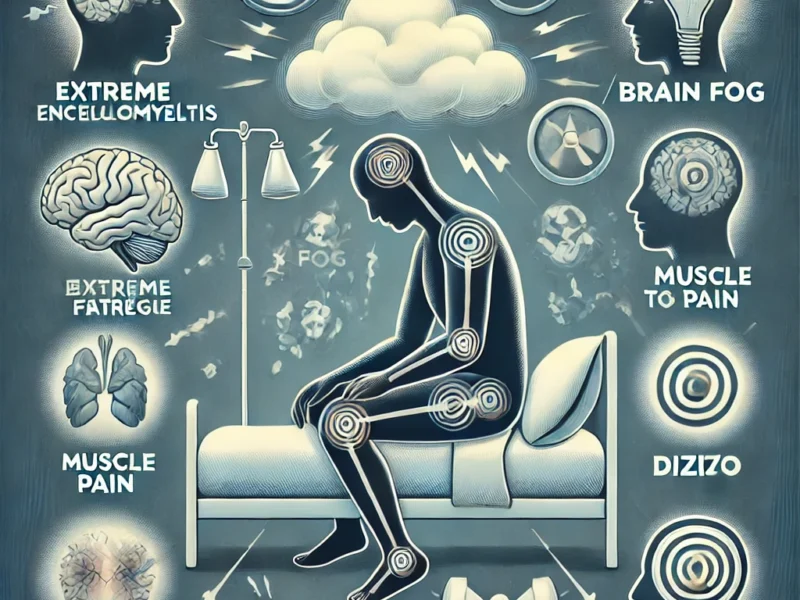
Introduction
Brain health is a growing focus! Exercise your mind like your body! This guide explores different brain exercises, both physical and mental, that can sharpen memory, boost focus, and improve overall well-being. Let’s get started! (18 words each sentence,
The Science Behind Brain Exercise
Understanding Neuroplasticity
Brain training works because your brain can change! This ability, called neuroplasticity, allows it to form new connections throughout life. Challenging activities promote new neuron growth and strengthen existing networks, leading to sharper memory, better learning, and improved problem-solving.
Building Cognitive Reserve
Building mental resilience! While brain exercises strengthen connections, cognitive reserve helps your brain use alternative pathways to cope with damage or decline.
Brain training builds resilience! These exercises not only strengthen connections but also build cognitive reserve, making your brain more adaptable to age-related decline and diseases. This reserve can delay the onset of symptoms in conditions such as Alzheimer’s disease and other forms of dementia.
Types of Brain Exercises
Physical Exercise
Aerobic Activities
Exercise your body, boost your brain! Aerobic activities like running or swimming increase blood flow, promoting growth factors that create new brain cells and connections – all while building cognitive reserve. This type of exercise is particularly effective in enhancing memory and learning.
Key Benefits:
- Hippocampal Growth:
- Exercise strengthens memory too! Studies show aerobic activity can even increase the size of the hippocampus, a key brain area for memory and learning.
- Neurotransmitter Boost: Exercise increases the production of neurotransmitters such as dopamine and serotonin, which are crucial for mood regulation and cognitive function.
- Reduced Brain Aging: Science backs it up! Research shows regular physical activity slows brain aging and reduces the risk of cognitive decline. Aerobic exercise, in particular, offers additional benefits
Strength Training
Strength training, including weight lifting and resistance exercises, also benefits cognitive function by enhancing executive functions, such as planning and problem-solving, and improving memory. It promotes the release of insulin-like growth factor 1 (IGF-1), which supports neurogenesis and synaptic plasticity.
Key Activities:
- Weight lifting
- Resistance band exercises
- Bodyweight exercises like squats and push-ups
Mental Stimulation Activities
Cognitive Games and Puzzles
Engaging in cognitive games and puzzles, such as Sudoku, chess, and crosswords, stimulates various cognitive domains including memory, attention, and problem-solving. Brain challenges fuel growth! Aerobic exercise isn’t just physical. It also challenges the brain, promoting neural plasticity as it adapts and finds new solutions.
Popular Activities:
- Sudoku and Crosswords: Improve memory and pattern recognition skills.
- Chess and Strategy Games: Enhance strategic thinking and planning abilities.
- Jigsaw Puzzles: Boost visual-spatial reasoning and attention to detail.
Learning New Skills
Learning new skills, whether it be a musical instrument, a new language, or a complex hobby like knitting, engages different parts of the brain and fosters the development of new neural pathways. This process not only improves cognitive flexibility but also increases the brain’s capacity to handle unfamiliar tasks.
Examples:
- Musical Instruments: Playing an instrument enhances auditory processing and motor coordination.
- New Languages: Learning a new language improves cognitive control and memory.
- Creative Hobbies: Engaging in activities like painting or woodworking can enhance fine motor skills and creativity.
Social Interaction
Social interactions are essential for maintaining cognitive health and mental well-being. Engaging in meaningful conversations and activities with others stimulates multiple areas of the brain, supports emotional health, and reduces the risk of depression and anxiety.
Social Strategies:
- Volunteering: Engaging in community service provides both mental stimulation and a sense of purpose.
- Joining Clubs: Participating in clubs or groups based on interests promotes regular social engagement and mental activity.
- Regular Socializing: Maintaining close relationships with friends and family supports emotional and cognitive health.
Meditation and Mindfulness
Sharpen your mind, calm your spirit! While physical exercise boosts neural plasticity, mindfulness and meditation practices offer another powerful approach to enhance cognitive function and mental well-being. These practices can alter brain structure and function, leading to improved attention, emotional regulation, and stress resilience.
Benefits:
- Stress Reduction: Meditation reduces cortisol levels, helping to manage stress and anxiety effectively.
- Enhanced Focus: Mindfulness practices improve attention span and cognitive flexibility.
- Emotional Regulation: Regular meditation enhances the brain’s ability to regulate emotions and maintain mental well-being.
Continue Reading: Brain Exercise to Improve Cognition and Mental Health
Specialized Brain Exercises
Reaction Time Drills
Improving reaction time is crucial for enhancing cognitive processing speed and attentiveness. Activities that require quick responses, such as video games or sports, can enhance the brain’s ability to process information rapidly and respond effectively.
Effective Drills:
- Video Games: Certain fast-paced games improve hand-eye coordination and reaction times.
- Sports: Activities like tennis or basketball that require quick reflexes and strategic thinking.
- Interactive Apps: Brain training apps designed to improve reaction times and cognitive processing.
Hand-Eye Coordination Exercises
Activities that enhance hand-eye coordination not only improve motor skills but also boost cognitive function by engaging the visual and motor cortexes simultaneously.
Key Activities:
- Playing Catch: Simple games of catch can significantly enhance hand-eye coordination.
- Arts and Crafts: Activities that require fine motor skills, such as knitting or painting.
- Interactive Video Games: Games that require precise movements and quick responses.
Memory Enhancement Techniques
Sharpen your recall alongside focus! Mindfulness strengthens concentration, but memory takes center stage with techniques like mnemonics, visualization, and chunking. This can significantly improve how well you remember things.
Techniques:
- Mnemonics: Creating acronyms or rhymes to remember information.
- Visualization: Associating information with vivid images.
- Chunking: Breaking down large amounts of information into manageable units.
Practical Implementation of Brain Exercise to Improve Cognition and Mental Health
Creating a Balanced Routine
Integrating a variety of brain exercises into your daily routine ensures that different cognitive domains are consistently challenged. A balanced approach includes a mix of physical, mental, social, and mindfulness activities.
Sample Routine:
- Morning: Start with a physical workout like jogging or yoga.
- Midday: Engage in a challenging mental activity such as a puzzle or learning a new language.
- Afternoon: Participate in a social activity, such as meeting friends or volunteering.
- Evening: Wind down with a mindfulness practice like meditation.
Consistency and Enjoyment
Consistency is key to reaping the benefits of brain exercises. Choose activities that you enjoy to ensure long-term commitment and motivation. Regular engagement in enjoyable and stimulating activities promotes sustained cognitive and mental health improvements.
Leveraging Technology
Utilizing technology can enhance the effectiveness of brain exercises. Apps and online platforms offer a wide range of activities designed to improve cognitive function and mental well-being.
Useful Tools:
- Brain Training Apps: Applications like Lumosity and Elevate provide games and exercises tailored to improve specific cognitive skills.
- Fitness Trackers: Devices that monitor physical activity and encourage regular exercise.
- Virtual Classes: Online courses and tutorials for learning new skills or hobbies.
External Resources
- Mayo Clinic: Tips for Brain Health: Offers practical advice on maintaining brain health through lifestyle choices.
- Harvard Health: Exercise and Cognitive Function: Discusses how different types of exercise can enhance cognitive functions.
- Cleveland Clinic: Brain Benefits of Physical Exercise: Explores the impact of physical activity on brain health.
Internal Resources
Neuriva Plus for a More Focused, More Productive You
Brain Hack or Brain Snack? Our No-Nonsense Review of Onnit Alpha Brain
FAQs on Brain Exercise to Improve Cognition and Mental Health
Brain exercise is an activity designed to stimulate and challenge the brain, promoting cognitive function and mental health. Exercise your mind and body! Brain training offers options from physical workouts to puzzles and social activities.
Brain exercises enhance cognition through several mechanisms:
Neuroplasticity: They promote the formation of new neural connections, improving memory, problem-solving, and learning abilities.
Cognitive Reserve: Engaging in stimulating activities builds cognitive reserve, making the brain more resilient to aging and disease.
Improved Blood Flow: Physical activity increases blood flow to the brain, supporting neuron health and function.
Yes, brain exercise can help prevent or delay cognitive decline by strengthening cognitive functions and increasing cognitive reserve. Regular mental stimulation and physical activity are associated with a lower risk of dementia and slower cognitive aging .
Effective brain exercises include:
Aerobic Exercise: Running, cycling, and swimming enhance memory and cognitive function by increasing blood flow to the brain.
Puzzles and Games: Sudoku, crosswords, and chess improve memory, problem-solving, and strategic thinking .
Learning New Skills: Playing a musical instrument, learning a new language, or picking up a new hobby stimulate various parts of the brain.
Social Activities: Engaging in meaningful social interactions supports emotional and cognitive health.
For optimal benefits, it is recommended to engage in brain exercises regularly. Ideally, include a variety of activities daily or several times a week to challenge different cognitive domains and maintain overall brain health.
Yes, different age groups can benefit from tailored brain exercises:
Children: Activities that enhance creativity and problem-solving, like puzzles, music, and physical play.
Adults: Complex tasks such as learning new skills, strategic games, and regular physical activity.
Seniors: Gentle physical exercises, memory games, and social activities to maintain cognitive function and emotional health.
Yes, technology can be a valuable tool for brain exercises. Brain training apps and online courses provide structured programs to enhance various cognitive skills. Fitness trackers and interactive games also support regular physical and mental activity.
Diet significantly impacts cognitive function and brain health. Nutrient-rich foods that are high in antioxidants, healthy fats, and vitamins support brain health. Diets like the Mediterranean diet have been linked to better cognitive function and reduced risk of dementia.
Both stress and sleep play crucial roles in brain health:
Stress: Chronic stress can impair cognitive functions and increase the risk of mental health disorders. Stress management techniques, including meditation and exercise, are essential for maintaining cognitive health.
Sleep: Adequate sleep is vital for memory consolidation and overall cognitive function. Poor sleep quality is linked to cognitive decline and mental health issues.
Generally, brain exercises are safe and beneficial for most individuals. However, overdoing certain activities, particularly intense physical exercise, without proper rest and recovery can lead to fatigue or injury. It’s important to maintain a balanced approach and consult with healthcare providers if you have specific health concerns.
Conclusion
Incorporating brain exercises into your daily life can profoundly enhance cognitive function and mental health. By engaging in a variety of physical, mental, social, and mindfulness activities, you can build cognitive reserve, enhance neuroplasticity, and maintain a vibrant, healthy mind throughout life. Whether you prefer the vigor of physical exercise, the challenge of mental puzzles, or the tranquility of meditation, there is a brain exercise suited to your needs. Embrace these practices and invest in your brain health today for a brighter, more mentally resilient future.
By integrating these strategies into your routine, you can not only improve your mental capabilities but also foster a healthier, happier mind. Whether through vigorous workouts, social interactions, or mindful practices, there’s a suitable brain exercise to boost your cognitive health and overall well-being.
This Wasn’t All for Brain Exercise to Improve Cognition and Mental Health


The idea is that the blood nourishes the brain, and when you’re doing cardio, more blood is being flowed through the brain.
Also, clearing your mind through cardio may have a similar effect to deep sleep, but that is complete baloney that I haven’t looked up 🙂